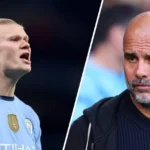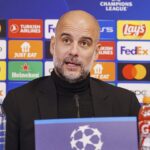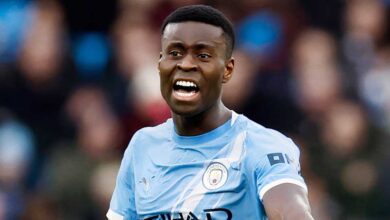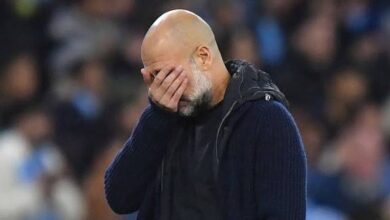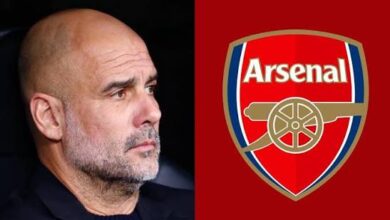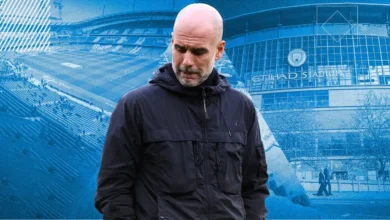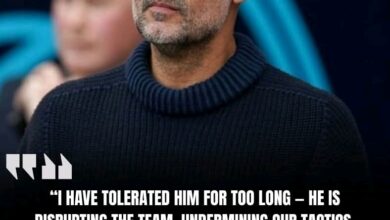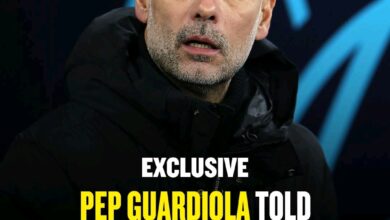Man City simply have to give ‘special’ player a new contract after what he did last season, it’s a no-brainer
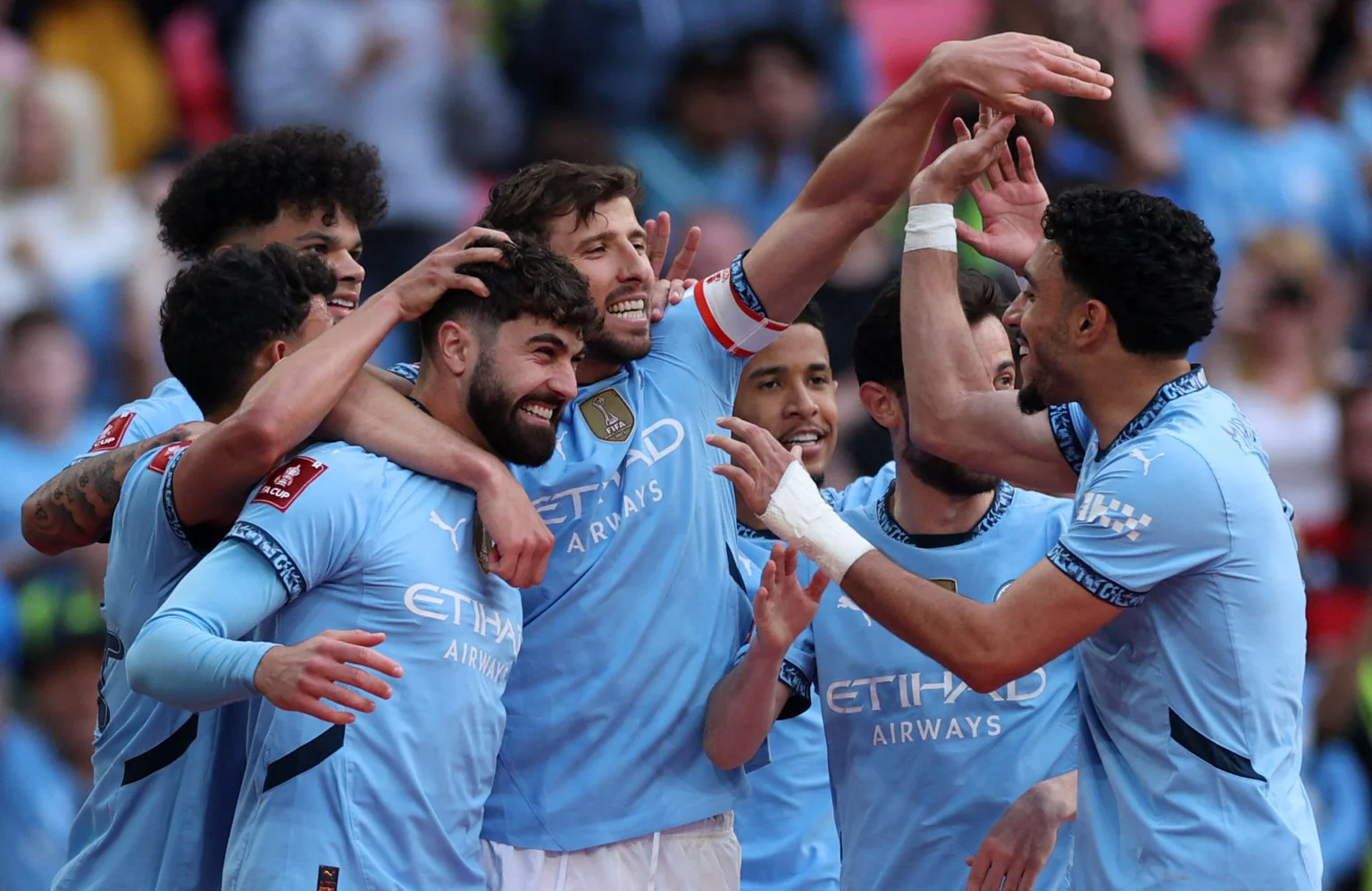
Manchester City’s summer of 2025 has been marked by significant activity in the transfer market, with Pep Guardiola’s side moving quickly to address the shortcomings that became apparent during a challenging 2024/25 season. While the club has been proactive in bringing in new talent and restructuring their coaching staff, another crucial piece of business awaits attention: securing the long-term future of their most impressive performer from last season, Josko Gvardiol.
The Context: A Season of Transition and Renewal
The 2024/25 campaign represented a watershed moment for Manchester City. After years of dominance under Pep Guardiola, the club experienced what many considered their most challenging season in recent memory. The struggles weren’t merely reflected in results but in the very fabric of their performances, with defensive vulnerabilities and tactical uncertainties becoming increasingly apparent as the season progressed.
Recognizing the need for substantial changes, Guardiola entered the summer transfer window with clear objectives. The Spanish tactician identified the need to add four to five new faces to his squad, a target that was successfully achieved before the club’s departure for the FIFA Club World Cup. This proactive approach demonstrated the club’s commitment to returning to their previous heights and addressing the systemic issues that had plagued their previous campaign.
The summer overhaul wasn’t limited to player acquisitions. The coaching staff also underwent significant changes, with the additions of Pepijn Lijnders and James French bringing fresh perspectives and expertise to the backroom team. These appointments signal a broader institutional commitment to evolution and adaptation, qualities that have long been hallmarks of Guardiola’s tenure at the Etihad Stadium.
However, as the dust settles on the transfer window activities, attention must inevitably turn to another crucial aspect of squad management: contract renewals. In modern football, securing the services of key players through improved contract terms has become as important as any transfer activity. It’s in this context that the case for offering Josko Gvardiol a new deal becomes not just compelling, but essential.
The Gvardiol Phenomenon: From Promise to Performance
When Manchester City secured the services of Josko Gvardiol, the Croatian international arrived with significant expectations. The young defender had already established himself as one of Europe’s most promising center-backs, combining physical prowess with technical ability in a manner that perfectly aligned with Guardiola’s tactical philosophy. However, the transition from promising talent to established performer at the highest level is never guaranteed, making Gvardiol’s subsequent development all the more remarkable.
The 2024/25 season served as Gvardiol’s coming-of-age campaign at Manchester City. While the team as a whole struggled with consistency and identity, the Croatian defender emerged as a beacon of reliability and excellence. His performances throughout the season demonstrated not just his current ability, but his potential to become one of the world’s elite defenders.
What made Gvardiol’s season particularly impressive was his ability to excel in multiple areas of the game. Defensively, he showed remarkable consistency in his positioning, aerial duels, and one-on-one situations. His reading of the game matured significantly, allowing him to anticipate danger and make crucial interventions at critical moments. These defensive attributes alone would have made him a valuable asset, but Gvardiol’s contribution extended far beyond traditional defensive duties.
In possession, Gvardiol demonstrated the kind of ball-playing ability that Guardiola demands from his center-backs. His passing range, both short and long, provided Manchester City with an additional dimension in their build-up play. His comfort on the ball under pressure became a crucial asset, particularly during games where the team faced intense pressing from opponents. This technical proficiency, combined with his physical attributes, made him an ideal fit for Guardiola’s tactical system.
The Recognition: Player of the Season
The culmination of Gvardiol’s exceptional performances was his recognition as Manchester City’s Player of the Season for the 2024/25 campaign. This accolade, voted for by fans, peers, and club officials, represents more than just individual recognition; it symbolizes the Croatian’s transformation from promising signing to indispensable team member.
Winning the Player of the Season award during a challenging campaign for the club makes Gvardiol’s achievement even more significant. While Manchester City struggled as a collective unit, Gvardiol’s individual excellence provided a foundation upon which the team could build. His consistency during turbulent times demonstrated not just his quality as a player, but his character and mental fortitude.
The recognition from teammate Mateo Kovacic, who described Gvardiol as “special” and predicted that he could “dominate for years,” carries particular weight. Kovacic’s assessment comes from someone who has played at the highest level throughout his career, including successful spells at Real Madrid and Chelsea. His endorsement of Gvardiol’s potential speaks to the Croatian’s exceptional qualities and future prospects.
The Contract Conundrum: Current Situation and Future Implications
Despite his outstanding performances and growing reputation, Gvardiol currently finds himself in a peculiar situation regarding his contract status at Manchester City. While his current deal runs until 2028, providing the club with reasonable security, his weekly salary of £200,000 reflects a contract negotiated before his emergence as the team’s standout performer.
The contract situation becomes even more complex when compared to other defenders in the squad. Ruben Dias, who has been offered a new contract by the club, currently earns £180,000 per week, while John Stones receives £250,000 per week. The disparity between these salaries and Gvardiol’s compensation raises questions about the club’s valuation of their respective contributions.
Recent reports suggest that Dias’s new contract would likely include a significant salary increase, potentially pushing him above Gvardiol in the wage structure. This development would create an anomalous situation where the club’s Player of the Season earns less than teammates who have not reached the same performance levels in recent seasons.
The timing of contract discussions has become increasingly important in modern football. With three years remaining on Gvardiol’s current deal, the club might feel there’s no immediate urgency to negotiate new terms. However, this perspective fails to account for the rapidly changing dynamics of the transfer market and the growing interest from other elite clubs.
The Real Madrid Factor: External Pressure and Market Dynamics
The specter of Real Madrid’s interest in Gvardiol adds another layer of complexity to Manchester City’s contract considerations. The Spanish giants have long been admirers of the Croatian defender, and their interest is unlikely to diminish given his continued development and impressive performances.
Real Madrid’s approach to player recruitment has evolved significantly in recent years. Rather than pursuing established superstars at premium prices, the club has increasingly focused on identifying and securing young talents before they reach their peak market value. Gvardiol fits this profile perfectly: a young, talented defender with the potential to dominate at the highest level for years to come.
The financial implications of potential Real Madrid interest cannot be understated. If Gvardiol continues his current trajectory and maintains his performance levels, his market value will inevitably increase. By the time his contract enters its final two years, Manchester City could find themselves in a weakened negotiating position, potentially facing a situation where they must either accept a lower transfer fee or risk losing him on a free transfer.
This scenario becomes even more concerning when considering Real Madrid’s track record of acquiring players in the final years of their contracts. The Spanish club has successfully negotiated favorable deals for several high-profile players by waiting until their contract situations became precarious at their current clubs.
The Financial Argument: Investment vs. Risk
From a purely financial perspective, offering Gvardiol a new contract represents a sound investment strategy for Manchester City. The Croatian’s current market value, estimated at around £80-100 million, reflects his status as one of Europe’s most promising defenders. By securing his services with an improved contract, the club would protect this significant asset while potentially increasing his market value through continued development.
The cost of replacing Gvardiol would far exceed the expense of offering him a new contract. In today’s inflated transfer market, acquiring a defender of comparable quality would likely require a fee exceeding £100 million, plus substantial agent fees and signing bonuses. When viewed in this context, the additional salary costs associated with a new contract become relatively modest.
Furthermore, the stability provided by long-term contracts extends beyond financial considerations. Players who feel valued and secure in their positions are more likely to maintain high performance levels and contribute positively to team dynamics. Gvardiol’s continued development and adaptation to Guardiola’s system would benefit significantly from the security of a long-term contract.
The Sporting Argument: Building for the Future
Beyond financial considerations, the sporting argument for offering Gvardiol a new contract is equally compelling. At 23 years old, the Croatian defender is entering what should be the prime years of his career. Center-backs typically reach their peak between the ages of 26-30, suggesting that Gvardiol’s best years are still ahead of him.
The defender’s versatility adds another dimension to his value. Under Guardiola’s guidance, Gvardiol has shown the ability to play in multiple positions across the defensive line. His pace and technical ability make him capable of playing as a left-back when required, while his aerial dominance and positioning make him equally effective as a central defender. This versatility provides tactical flexibility that is invaluable in modern football.
Gvardiol’s leadership qualities, though still developing, have become increasingly apparent. His performances during difficult periods of the 2024/25 season demonstrated a maturity beyond his years. As he continues to develop, these leadership attributes will become even more valuable, potentially making him a future captain of the club.
The Precedent: Learning from Past Mistakes
Manchester City’s history with contract negotiations provides valuable lessons for the current situation. The club has occasionally found itself in difficult positions when key players entered the final years of their contracts, leading to either expensive last-minute renewals or unwanted departures.
The cases of players like Leroy Sane and Ferran Torres serve as cautionary tales of what can happen when contract situations are not addressed proactively. Both players left the club for fees that, while substantial, were below their potential market value had they been under longer-term contracts.
Conversely, the club’s proactive approach with players like Erling Haaland and Phil Foden demonstrates the benefits of securing key players early. These deals, negotiated before the players reached their absolute peak, have provided the club with long-term security while protecting significant assets.
The Comparison Game: Salary Structure and Fairness
The current salary structure at Manchester City raises questions about the club’s valuation of different players’ contributions. While salary comparisons can be problematic due to various factors including length of service, market conditions at the time of signing, and individual negotiations, the disparity between Gvardiol’s compensation and that of his defensive colleagues is notable.
John Stones, earning £250,000 per week, signed his current contract during a period when his performances were consistently excellent. However, his form has been more inconsistent in recent seasons, with injuries and tactical changes affecting his playing time and impact. While Stones remains a valuable squad member, his current contribution doesn’t clearly justify earning £50,000 more per week than the team’s Player of the Season.
Similarly, the proposed increase for Ruben Dias, while potentially justified by his previous contributions to the club, raises questions about the relative valuation of current form versus past achievements. Dias’s performances during the 2024/25 season and at the FIFA Club World Cup have been subject to criticism, with many observers noting a decline in his defensive consistency.
The Guardiola Factor: Tactical Evolution and Player Development
Pep Guardiola’s influence on Gvardiol’s development cannot be overstated. The Spanish manager’s tactical system places unique demands on defenders, requiring them to be comfortable in possession, capable of playing in multiple positions, and able to contribute to both defensive and attacking phases of play.
Gvardiol’s adaptation to Guardiola’s system has been remarkable. His ability to step into midfield when required, his composure in possession under pressure, and his understanding of the tactical nuances of the system have all improved significantly under the manager’s guidance. This development suggests that Gvardiol’s best years under Guardiola are still to come.
The tactical evolution of Guardiola’s system also favors players with Gvardiol’s profile. As the manager continues to refine his approach, the emphasis on versatile, technical defenders who can contribute across multiple phases of play becomes increasingly important. Gvardiol’s skill set aligns perfectly with this tactical direction.
The International Dimension: Croatia’s Rising Star
Gvardiol’s performances for the Croatian national team add another layer to his growing reputation. His contributions to Croatia’s recent international campaigns have been consistently impressive, establishing him as one of the team’s key players despite his young age.
The international exposure and experience gained through his Croatia appearances have contributed to his development as a player. The different tactical systems and playing styles encountered in international football have broadened his understanding of the game and enhanced his adaptability.
Croatia’s status as a competitive international team means that Gvardiol will continue to gain valuable experience at the highest level. This international experience will undoubtedly benefit Manchester City, as players who excel on the international stage often translate that success to their club performances.
The Market Reality: Inflation and Value Protection
The current state of the transfer market makes the protection of existing assets through contract renewals even more crucial. Transfer fees for top-quality defenders have reached unprecedented levels, with clubs regularly paying £60-80 million for players who may not possess Gvardiol’s combination of current ability and future potential.
The inflation in the transfer market extends beyond transfer fees to include salary expectations. Players moving between clubs often receive significant salary increases, reflecting the competitive nature of the market. By proactively offering Gvardiol a new contract, Manchester City can potentially secure his services at a more reasonable cost than would be required to replace him.
The concept of value protection through contract renewals has become a standard practice among elite clubs. Rather than waiting for contracts to enter their final years, successful clubs proactively negotiate extensions that reflect players’ current market value and future potential.
The Conclusion: A Strategic Imperative
The case for offering Josko Gvardiol a new contract extends far beyond simple reward for past performance. It represents a strategic imperative that addresses multiple aspects of squad management, financial planning, and competitive positioning.
From a sporting perspective, Gvardiol has proven himself to be Manchester City’s most consistent and impressive defender. His performances during the 2024/25 season, culminating in his Player of the Season award, demonstrate his current value to the team. His age and continued development trajectory suggest that his best years are still ahead of him.
Financially, the investment in a new contract for Gvardiol represents sound asset protection. The cost of replacing him would far exceed the expense of an improved contract, while the risk of losing him at a reduced fee in the future makes early action prudent.
The competitive landscape, particularly the interest from clubs like Real Madrid, adds urgency to the situation. By securing Gvardiol’s long-term future, Manchester City can remove one source of uncertainty while sending a clear message about their ambitions and commitment to retaining their best players.
The salary structure argument provides additional justification for a new contract. The current disparity between Gvardiol’s compensation and that of his defensive colleagues creates an inequitable situation that fails to reflect recent performance levels and contributions.
Ultimately, the decision to offer Gvardiol a new contract should be viewed as a no-brainer. The combination of his current performance level, future potential, market value, and strategic importance to the team makes him an obvious candidate for contract renewal. Manchester City’s success in recent years has been built on making smart decisions about player retention and development. Securing Gvardiol’s future represents another such decision, one that will benefit the club both in the short term and for years to come.
The time for action is now. Rather than waiting for external pressure to force their hand, Manchester City should proactively recognize Gvardiol’s value and secure his services with a contract that reflects his status as one of the world’s most promising defenders. In doing so, they would not only reward exceptional performance but also protect a valuable asset and demonstrate their commitment to building a squad capable of sustained success at the highest level.


